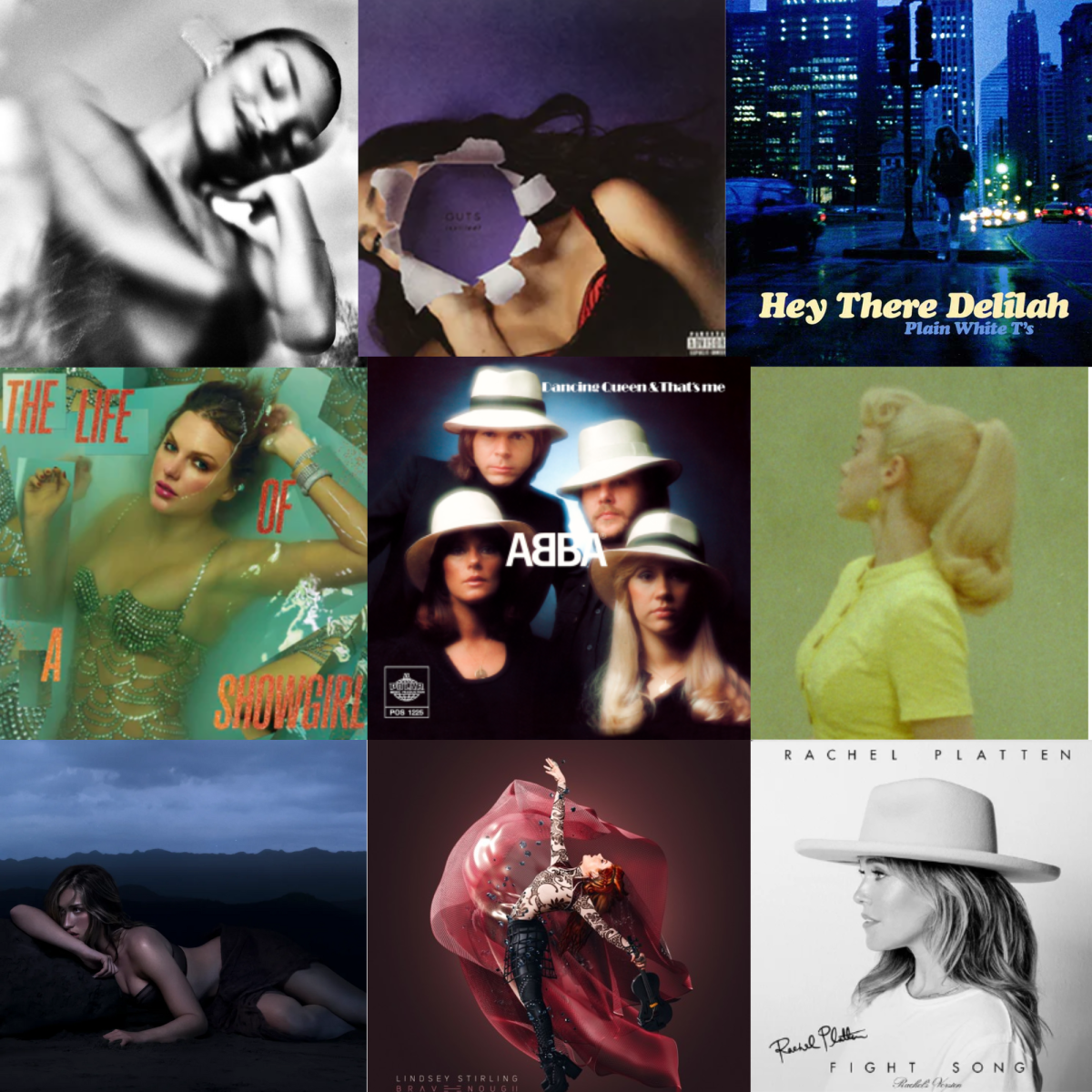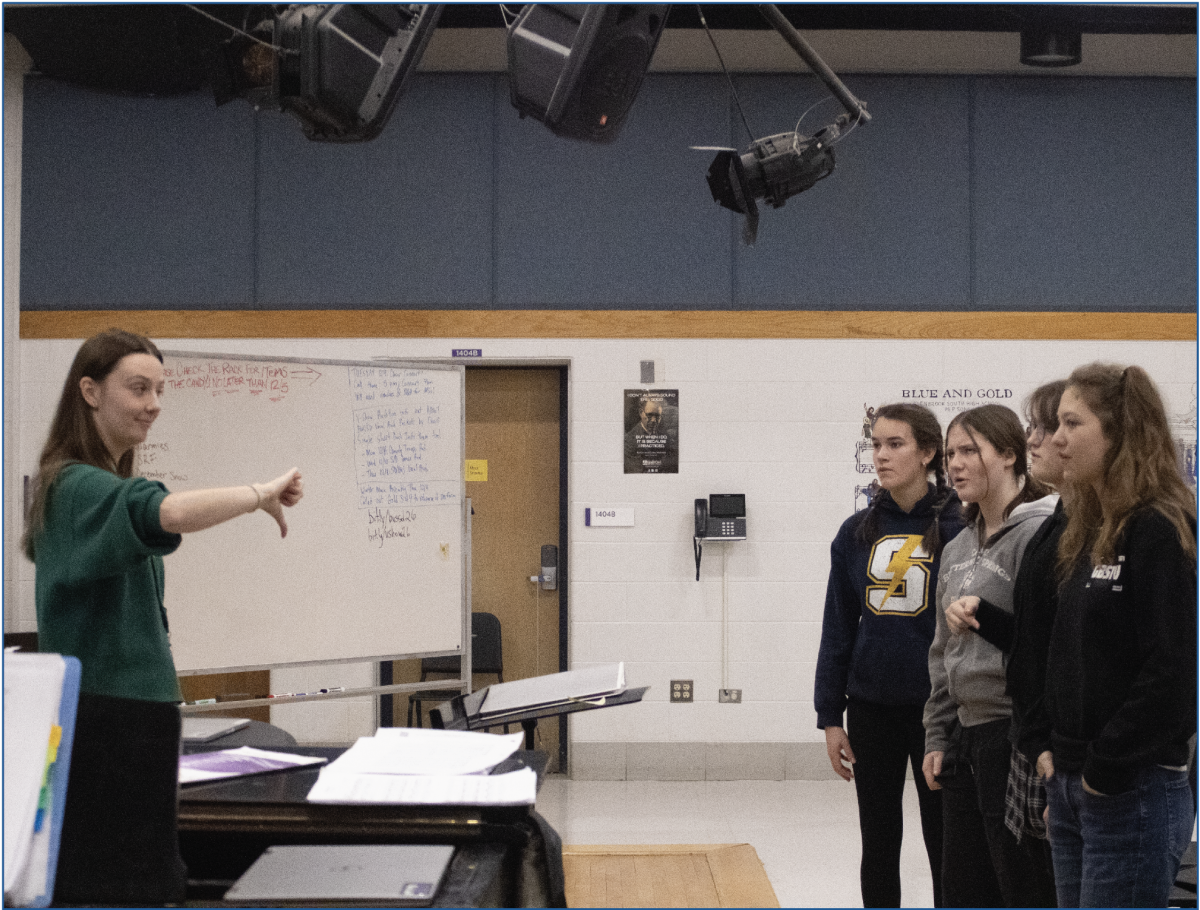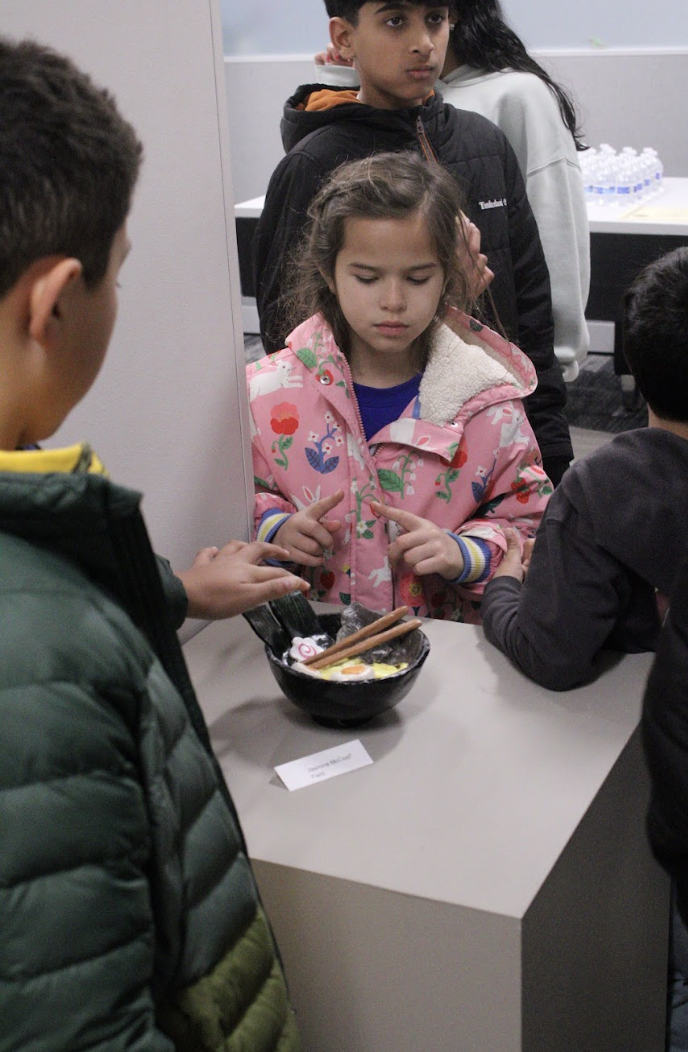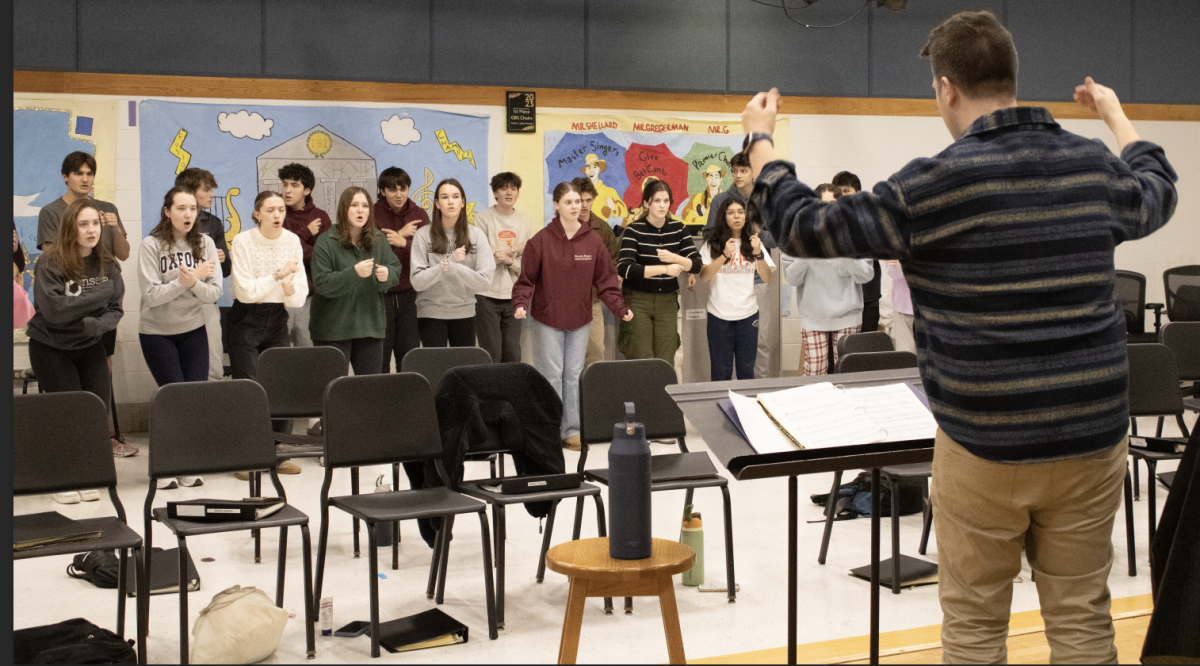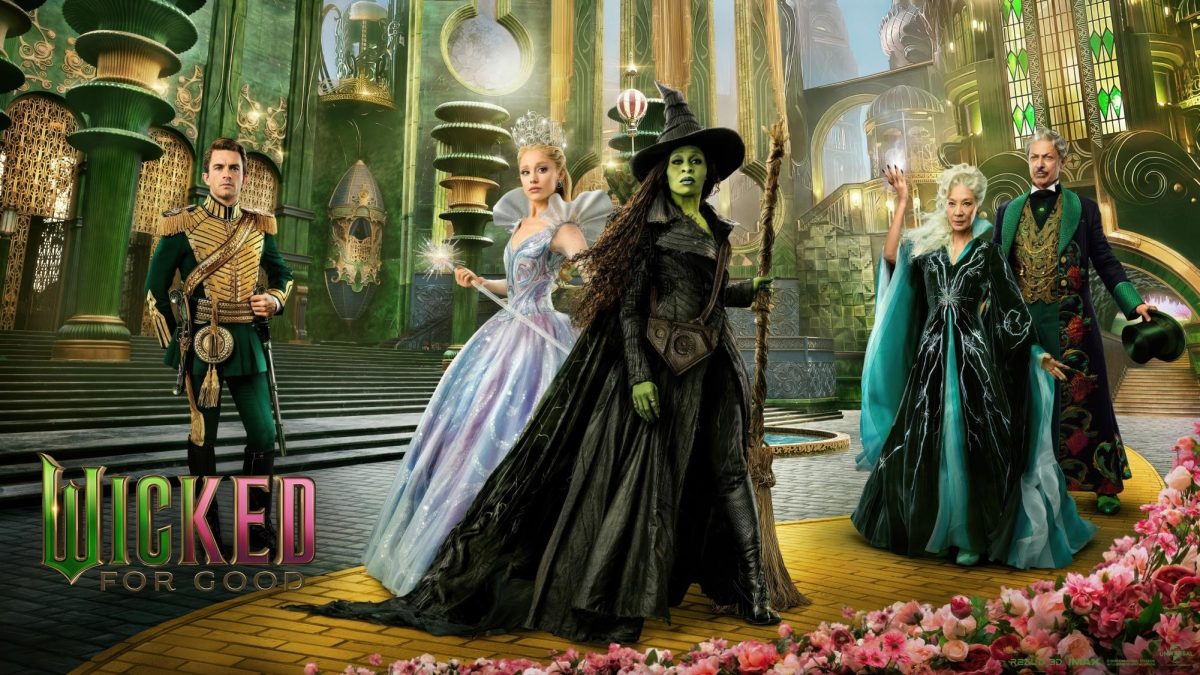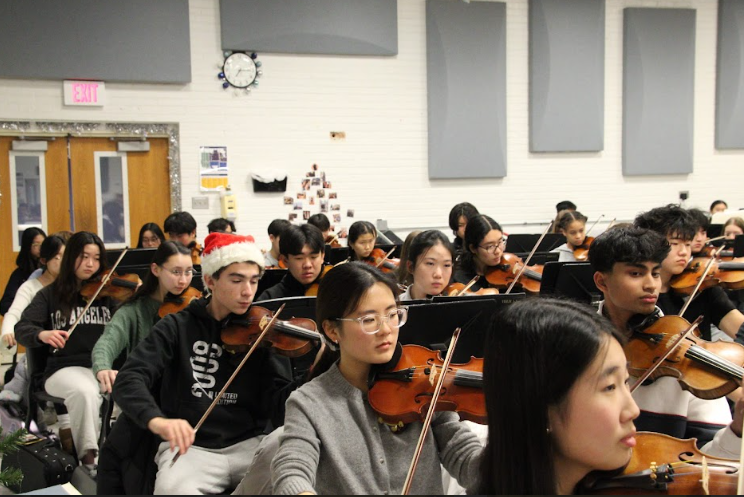Europe
Having relatives that live in Germany, junior Helene Paulson visited her extended family in the country. According to Paulson, this vacation was what sparked her interest in the cultural music of Germany.
“When I was 13, [my cousins] took me to a festival with German music,” Paulson said. “I saw the other [contemporary bands at the festival] and was like, ‘This is stuff I would actually listen to’. Ever since, [my cousins have] been sending me different artists.”
Paulson drew comparisons between German and American music, noting that some of the German bands were similar to the American bands. However, the different choices made in German music contrasted with American music, according to Paulson.
“It’s kind of just culturally different where they have different ways of creating the songs,” Paulson said. “If you think of German folk music, they use that standard to create some of the backgrounds for the music. It also makes it similar to the alternative pop in America, but it still has a uniqueness to it.”
Not only does she enjoy the music itself, but German music is also a way for Paulson to connect with her extended family. Despite the distance between the countries, Paulson and her family bond through their interest in German music.
“[When my family in Germany calls] during the winter, they say hello with their Christmas cards and send me messages [such as] ‘listen to this music; listen to that,’” Paulson said. “It’ll be our connection […] during the holidays.”
Paulson’s interest in foreign melodies is not limited to German music, however. On a visit to Scotland during the summer, Paulson became fascinated by the country’s music after arriving on the week of a bagpipe competition called The Tattoo.
“As soon as I got out of the airport there were bagpipes,” Paulson said. “There was a group of bagpipers from Florida who were doing a pop song [with] bagpipes […] I thought it was interesting to see how they could take the [tradition] that they’ve had for years and twist it into something different.”
Asia
According to freshman Sarah Mehdi, her musical interest in Korean pop, also referred to as K-pop, was a recent development that stemmed from one YouTube video in a series started by an account known as TheFineBros.
“I’ve watched [a video series called] ‘YouTubers React’,” Mehdi said. “One of [the episodes] was ‘YouTubers React to K-pop.’ I really liked the music, so I went to check out some of the bands in that, and it’s kind of [gotten] me addicted to it.”
Since then, Mehdi has listened to largely popular Korean artists such as EXO, SHINee, Big Bang and 2NE1 as often as during her passing periods and at home while finishing homework. Her devotion to the genre has also inspired her to learn the Korean language.
“I didn’t really understand what they were saying at first, but now I’m learning Korean,” Mehdi said. “I look up some of the translations and stuff too. [Also], sometimes what I’ll do is compare K-pop and American lyrics and be like, ‘Oh, the K-pop lyrics are always better.’”
This preference that Mehdi has also altered the ways she regards the pop music that surrounds culture in the U.S. today.
“Whenever they’re playing American music like Ariana Grande [on the radio], I’ll be like ‘[K-pop] is a lot better,’” Mehdi said. “I’m always asking my mom, ‘Mom, can we listen to K-pop, please? I don’t want to listen to this.’”
While Mehdi thoroughly enjoys it, even gaining clothing inspiration and aspirations to visit Asia in the future, others have questioned her inclination towards K-pop.
“Sometimes people think that it’s strange because I’m not Korean myself,” Mehdi said. “I’m Indian, so people find it a little strange. My friends sometimes [will] tease me about it, [but] I did show some of my friends some K-pop songs, and they do like some of them… The stars are really good at dancing too, so we were trying to figure out their moves and do them.”
Africa
After shuffling through different songs on Spotify, senior Avi Dravid was able to explore an unfamiliar genre called Afrobeat which originated in West Africa. This discovery enthralled him as someone who views himself as having a diverse music taste.
“I ended up finding [Afrobeat] tucked away in a place where not many people go [on Spotify],” Dravid said. “It’s not a genre that’s listened to outside of West Africa, but it was really cool because it transcended cultures; it was Western music that had a very authentic African feel to it, and that’s what really caught my attention.”
According to Dravid, Afrobeat consists of the use of traditional Western instruments that include the acoustic guitar, electric guitar and drums. However, unlike Western music, artists from this genre mold the phrasing and tempo typically heard from these instruments in the U.S. into more traditional forms of African music. This uniqueness to the music both surprised Dravid but also intrigued him.
“My initial reaction was, ‘This was nothing I’ve ever heard before,’” Dravid said. “[In] modern music, it’s very digital, like what you can do on your computer. [Afrobeat] was very visceral; you can feel it in your gut that they were putting their emotion into it. They’re playing their hearts out, [and] that’s what really attracted me to this type of music.”
The exotic element of this genre captivated him, and although Dravid is still not very familiar with the West African cultures, he believes that his listening to Afrobeat can further his understanding of it.
“I know that I’m not going to figure out everything about this culture, but this is just one avenue through which I can learn about the world in different ways and develop new connections with different people, many of whom I won’t have the opportunity to meet but through music,” Dravid said. “That’s a connection I can make from the United States, like a universal language. That’s what people call music.”


